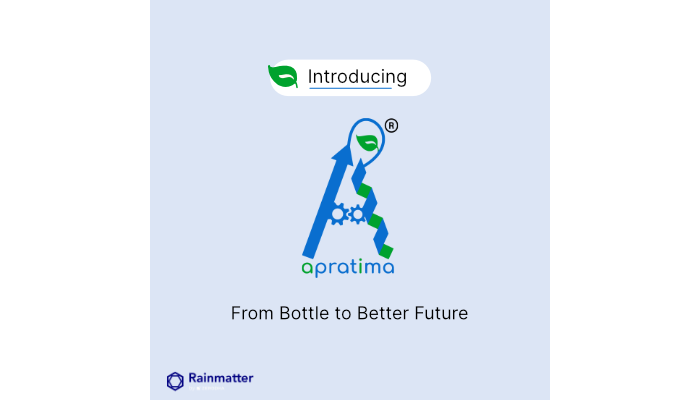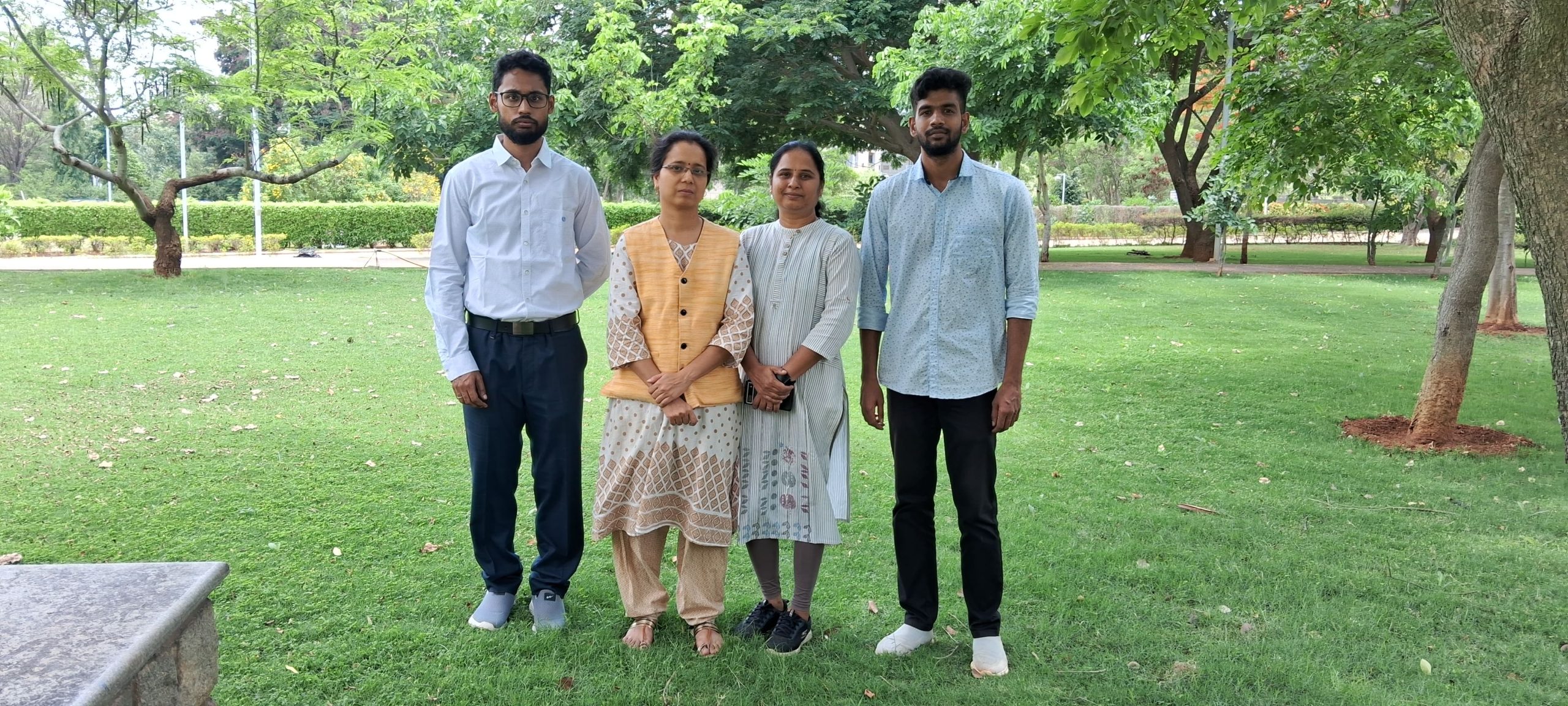
Engineering a Cleaner Future: How Apratima is Transforming PET Waste
Back in the 70’s, PET burst onto the scene as a miracle material. It was light, clear, strong, and perfect for packaging drinks and food. It quickly became part of everyday life, making bottles easy to carry and grocery packagng lighter, eventually weaving itself into the very fabric of our civilization. But as the years passed, our love for PET outpaced our ability to handle its waste. Recycling couldn’t keep up, and piles of plastic began to choke landfills, streets, and nature itself. In India alone, about 85% of the 3,800 tonnes of daily discarded PET bottles end up as unchecked waste, with nearly 280,000 tonnes never collected each year. Beyond litter, PET’s production releases harmful greenhouse gases, and its breakdown into microplastics now contaminates ecosystems and even human breast milk.
Despite these challenges, hope shines through innovation. At Rainmatter, we’re committed to supporting bold R&D projects in waste management, with our latest focus on Apratima, aiming to transform how PET waste is recycled and managed. The story of PET is far from over; it’s a call to rethink, innovate, and act for a cleaner, more sustainable future.
Here’s a note from Kavyashree, the founder of Apratima.
Apratima Biosolutions was founded in 2022 and is based out of Bangalore. We are a deep-tech startup in the field of biotechnology and AI. Our mission is to achieve circularity for PET waste, eliminating pollution due to PET waste using engineered enzymes. We envision eliminating environmental pollution by engineering powerful molecular tools like enzymes.
Origin of the idea
As an academic researcher for a large part of my career in the field of structural biology, drug discovery and protein engineering, failures are more often encountered than success. And plastic has been an inevitable part of every experiment. It became more and more important to understand the implications of the plastic waste on the planet and the scientific literature on plastics revealed mind boggling facts!
Some facts
The total amount of plastic produced in the whole world was 6300 Million metric tons and 4900 Million metric tons is still lying in the environment (land, oceans, air) which far exceeds the sum total of biomass of all humans on the planet is 390 Million tons. Humans when perish integrate into Nature, but the plastic we have created lives for several hundreds of years unscathed.
A bit of science & technology
Plastics are a chain of simple repeating “monomeric” units which are usually extracted from fossil fuels. Production of plastics also contributes significantly to carbon emissions. PET is one of the most widely used plastics in the packaging and textile industry. Despite being one of the highly recycled plastics, it still makes up ~7% of total plastic waste.
A typical recycling of PET leaves it partly deteriorated, making it impossible to recycle more than 7 or 8 times. Rarely, PET bottles are recycled into new bottles, with limitations. More often, PET bottles are down-cycled into polyester textiles. Most PET waste, however, just accumulates as litter and in landfills. Recycling chemically breaks down PET into monomeric units using chemicals at high temperature, requiring expensive catalysts. The high costs, energy requirements and use of chemicals limits their widespread adaptation.
The question
Is it possible to convert plastic waste into its building blocks, in an eco-friendly way similar to the way an animal or a plant would disintegrate in nature? And make the PET economy circular?
A clue from nature
Nature has evolved several microorganisms that can degrade PET waste using specialized enzymes. However, these enzymes take several months and years to degrade PET. A method that accelerates the evolution of these enzymes to accelerate the PET breakdown would be a promising solution.
Beginning of Apratima
Thus, the idea of engineering enzymes to break down PET waste into its building blocks was born. The idea, which started as an academic curiosity, led to the birth of Apratima Biosolutions. Initially, several grants from government and private entities supported the initial R&D to engineer the enzyme to the point where we could see the enzyme dissolve the PET sample in less than a day! It was the most exciting experience for the whole team.
Going forward
The possibility of converting PET waste back into its monomeric building blocks closes the loop, creating circularity. Our technology simultaneously addresses the issue of PET polluting the environment and the dependence on fossil fuel for PET production. Adaptation of the technology will reduce overall carbon emissions associated with PET.
Enzyme-based technology, though relatively new in plastic recycling, is evolving at a rapid pace globally to address the challenge of plastic pollution. With the growing demand for plastic packaging, a sustainable and eco-friendly technology to mitigate plastic waste becomes imperative. The alarming rate at which plastic pollution is building up in the environment and the rising pressure on the plastic industry to adhere to ERP mandates further encourage the evolution of more sustainable technologies in this sector.
Deep tech startups like ours need a longer gestation period. We were extremely fortunate to be supported by an organisation such as Rainmatter. Their commitment to climate action and a healthier environment will strengthen our startup’s journey to achieve our mission. With Rainmatter’s support, we aim to build a pilot study demonstrating our technology’s ease of adaptation by the PET industry for a cleaner future.


Interesting.
Want to more information.
Thanks
Loved the scope. Good luck team. This is a big cause.